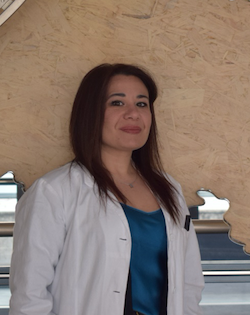
Immunology, Transplantation and Infectious diseases
Experimental Gastroenterology Unit

The laboratory of Experimental Gastroenterology, headed by Federica Ungaro, is particulary interested in studying chronic inflammatory conditions in close collaboration with the hospital's clinical units.
Research activity
THE MICROBIOME IN IBD
Inflammatory Bowel Disease (IBD) is a multifaceted class of relapsing-remitting chronic inflammatory conditions where microbiota dysbiosis plays a key role during its onset and progression. The human microbiota is a rich community of bacteria, viruses, fungi, protists, and archaea, and is an integral part of the body influencing its overall homeostasis. Emerging evidence highlights also dysbiosis of the archaeome and mycobiome to influence the overall intestinal microbiota composition in health and disease, including IBD, although they remain some of the least understood components of the gut microbiota. Nonetheless, their ability to directly impact the other commensals, or the host, reasonably makes them important contributors to either the maintenance of the mucosal tissue physiology or to chronic intestinal inflammation development. Our group aims at the full understanding of intestinal dysbiosis during IBD pathogenesis by expèloiting advanced computational approaches, with the promise of paving the way to the discovery of novel mechanisms, finally providing innovative therapeutic targets that can soon implement the currently available treatments for IBD patients.
RESOLUTION OF INFLAMMATION IN COLORECTAL CANCER
The intrinsic connection between inflammation and tumor promotion is well characterized and is a key pathogenic event in patients with colorectal cancer (CRC). A small fraction of patients with CRC suffers from genetic predisposition, but environmental factors and chronic inflammation represent the major causes of intestinal carcinogenesis. Patients suffering from inflammatory bowel diseases, including Crohn’s disease and ulcerative colitis, have a high risk of developing colitis-associated CRC with poor prognoses. Whatever the cause, tumor-associated inflammation remains a crucial hallmark of CRC, where the co-occurrence of either intrinsic (cancer cells that trigger inflammation), or extrinsic (chronic inflammation that promotes cancer) processes promotes its development. Therefore, targeting cancer-associated inflammation may offer new avenues for cancer treatment. Anti-inflammatory drugs currently used for the treatment of patients with CRC show many adverse side effects that prompted researchers to propose the specialized pro-resolving mediators, derived from omega-3 polyunsaturated fatty acids, as promoters of resolution of cancer-associated inflammation. Considering the direct connection between inflammation and cancer development that mutually impact each other, our group is currently looking at new metabolic routes that can promote the resolution of inflammation in CRC, opening new horizons for the treatment of tumor-associated inflammation.
Valentina Bozzetti
Postdoc Fellow
Stefania Cagliani
PhD Student
Carmela Errico
Postdoc Fellow
Amanda Facoetti
Postdoc Fellow
Luca Massimino
Bioinformatician, Research Associate
Sabrina Nicolò
Postdoc Fellow
Tommaso Parigi
PhD Student
Matteo Riva
Bioinformatician, Predoctoral Fellow
Paola Serri
Data Manager
Virginia Solitano
PhD Student
Salvatore Spanò
Lab Manager











